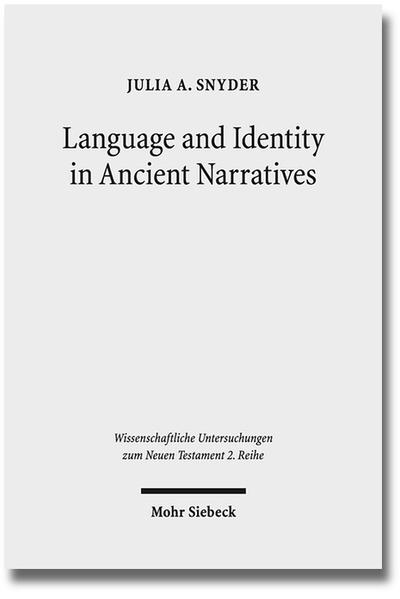SNYDER,J., Language and Identity in Ancient Narratives. Tübingen 2014.
Language and Identity in Ancient Narratives. The Relationship between Speech Patterns and Social Context in the Acts of the Apostles, Acts of John, and Acts of Philip. 1. Aufl. Tübingen, Mohr Siebeck, 2014.
23 x 16 cm. XVI, 329 S. Fadenbindung. (Wissenschaftliche Untersuchungen zum Neuen Testament 2. Reihe, 370). ISBN 9783161532641.
When a Christian writer refers to Jesus as „the Lord,“ what does it signify? Is it primarily a way of making a political or theological statement, or might social concerns have had more influence on the writer’s choice of words? Studies of early Christianity regularly depend on a nuanced understanding of lexical significance, but current research often fails to consider social aspects of „what words mean.“ Julia A. Snyder argues that methodological improvements are needed in how lexical significance in ancient Greek texts is determined, based on an analysis of the relationship between speech patterns and addressee identity in the Acts of the Apostles, Acts of John, and Acts of Philip. She also illustrates how sociolinguistic variation contributes to characterization and the construction of Christian identity in the narratives, how it sheds light on the rewriting of ancient texts, and how it informs the question of whether apostolic narratives were produced for evangelistic purposes.
Bestellnummer: 2802VB
Gebundener Ladenpreis: EUR 109,--

